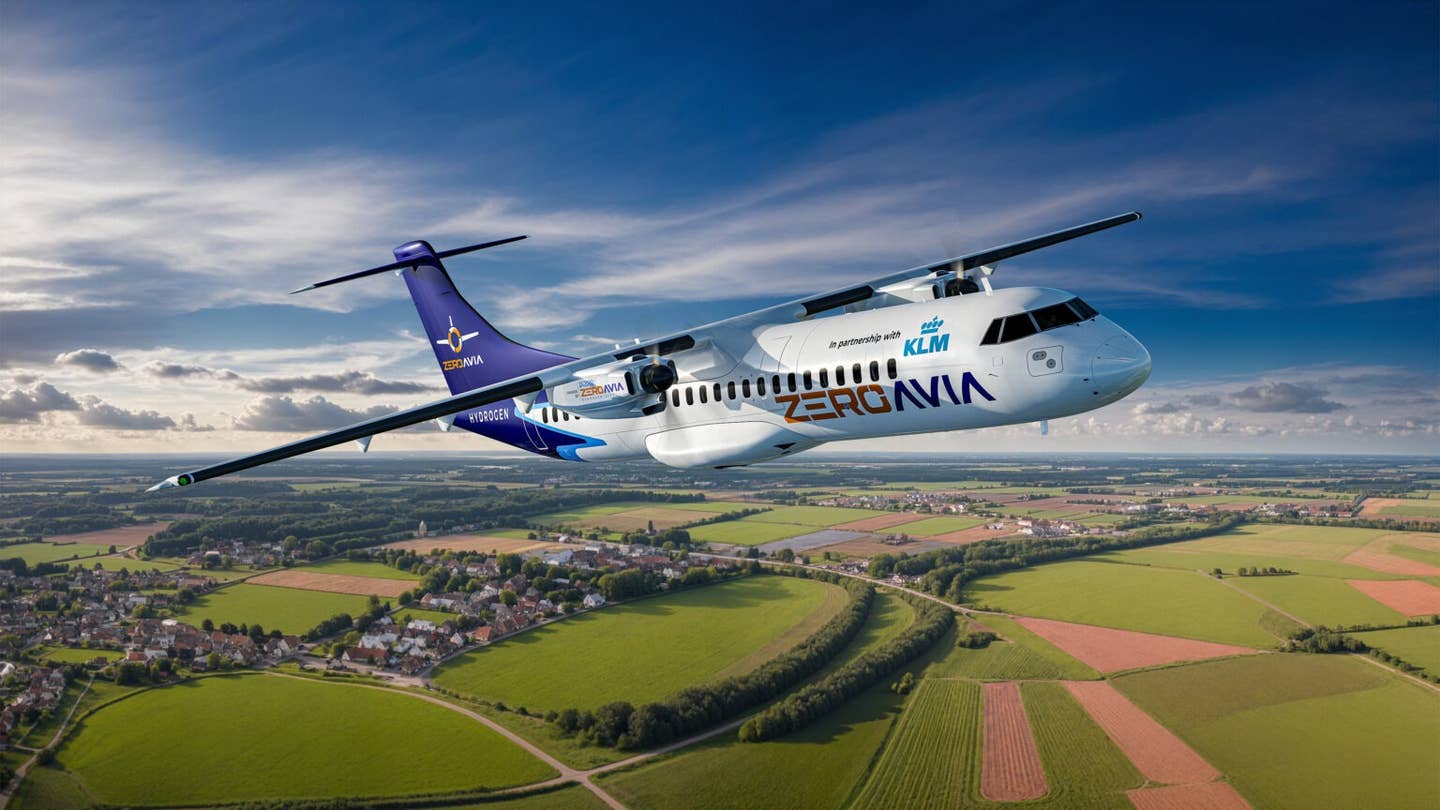
The fatal flaw standing in the way of effective use of electric-powered aircraft is very well understood and easily summed up in two words: energy density. [Photo: Air]
Israel-based startup Air has unveiled its personal electric vertical takeoff and landing (eVTOL) aircraft geared toward the individual consumer market.
Air One, the company’s inaugural vehicle, is an all-electric, two-seater eVTOL with an expected range of 110 miles on a single charge, a top speed of 155 mph, and an endurance of roughly one hour, according to the company.
It’s a fixed-wing aircraft with eight vertical-lift rotors mounted on the four corners of the airframe.
Using what it calls “Fly by Intent” software—an intuitive fly-by-wire system that can manage complex functions and navigation—the company says it’s creating a vehicle that’s easy to fly.
Additional safety features include an AI-enabled monitoring system, designed to perform vehicle inspections, the company states.
The company says its vehicle “prioritizes everyday practicality for consumers.” For example, Air One has collapsible wings to make parking easier.
“The future of mobility is in the sky,” said Air CEO and co-founder Rani Plaut in a statement. “But to get there, we need to build consumer confidence in eVTOLs as a legitimate mode of everyday transport and develop vehicles on a mass-scale to bring that vision to life.
“Air One is our hat in the ring.”
Air says it is currently working with the FAA to obtain G1 preliminary type certification, which it hopes to achieve in 2023, and will begin rolling out aircraft for commercial use in 2024. It is also seeking mass production of its aircraft.
Although pricing info isn’t expected to be available to the public until 2022, the company says it is taking preorders with additional cost details to be released to those who sign up.
There are dozens of companies working to accelerate the eVTOL industry and make it a reality in day-to-day life, but most are focused on commercial applications. Air joins the ranks of other developers, including HT Aero, Tetra Aviation, and Next UAS, which say that in order for eVTOL to become a reality, it needs to be more accessible.

Subscribe to Our Newsletter
Get the latest FLYING stories delivered directly to your inbox






